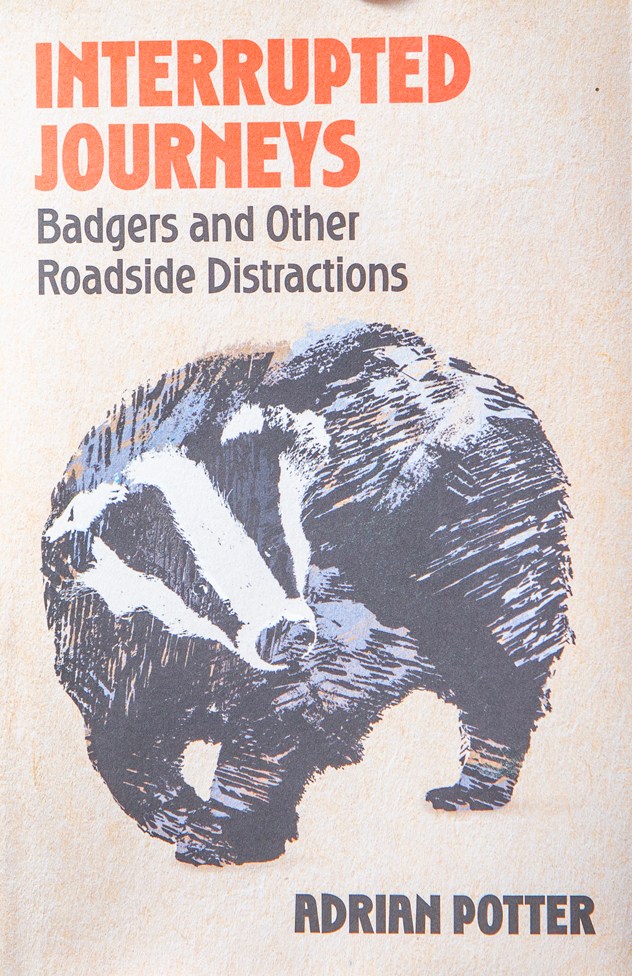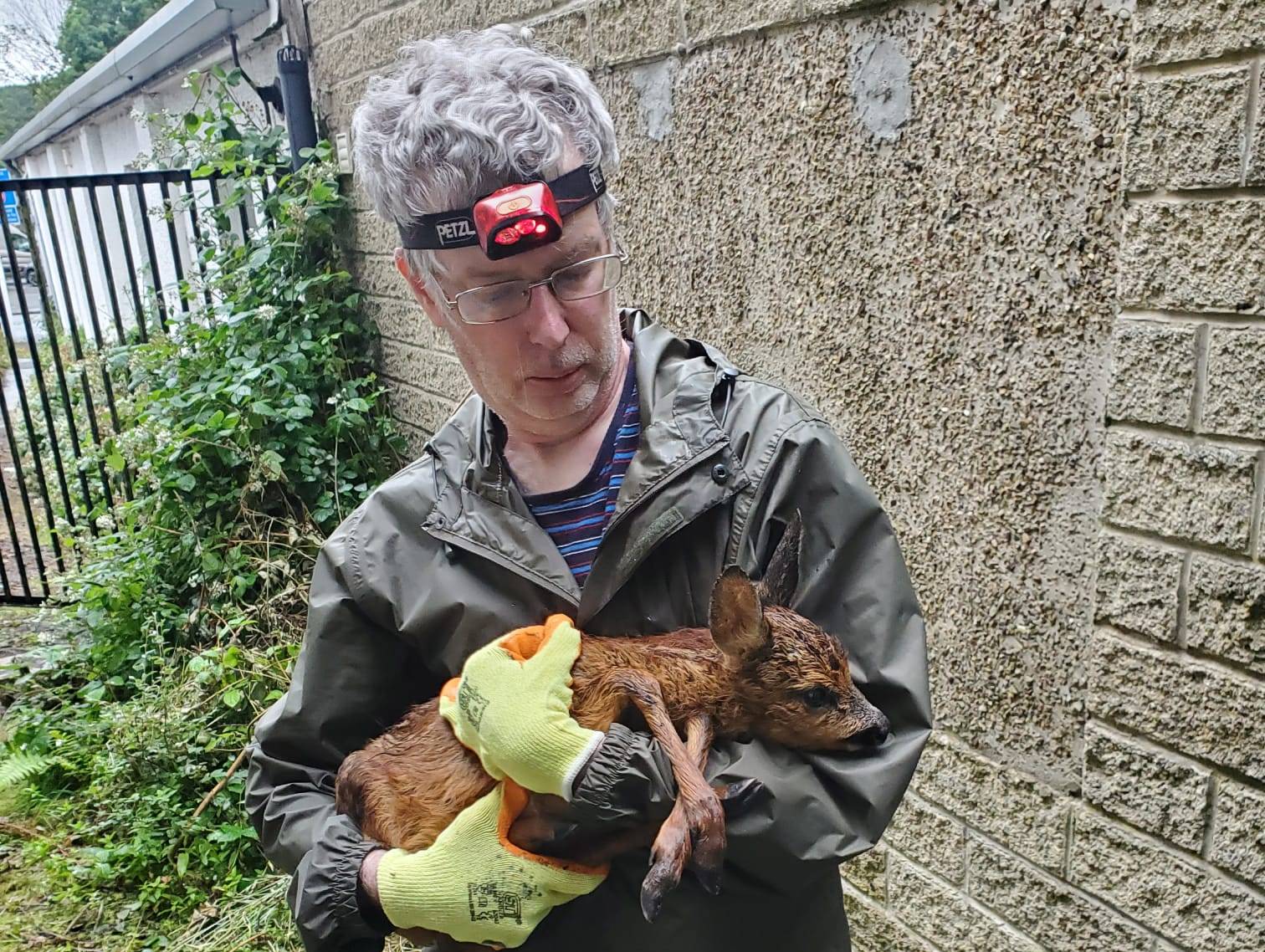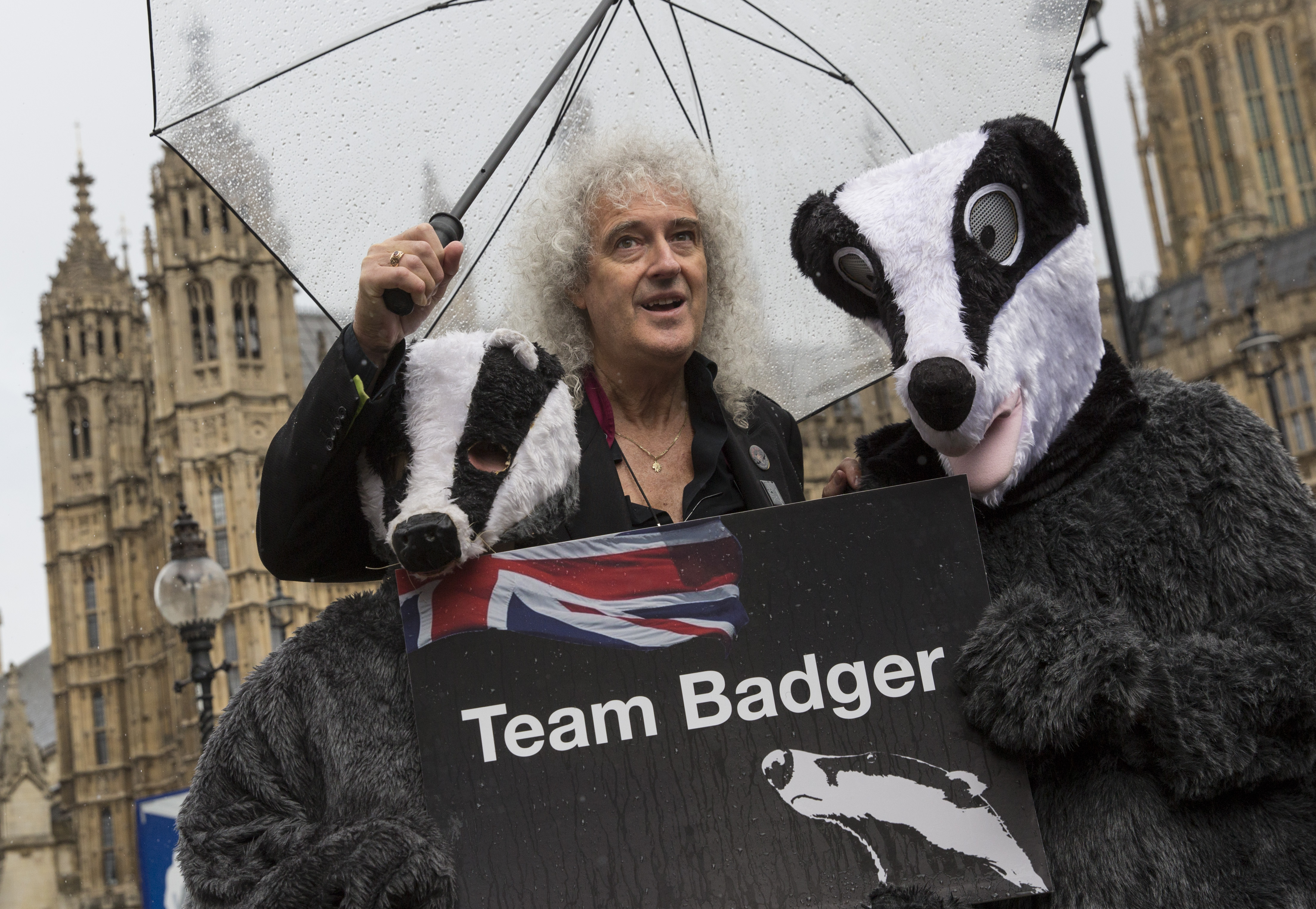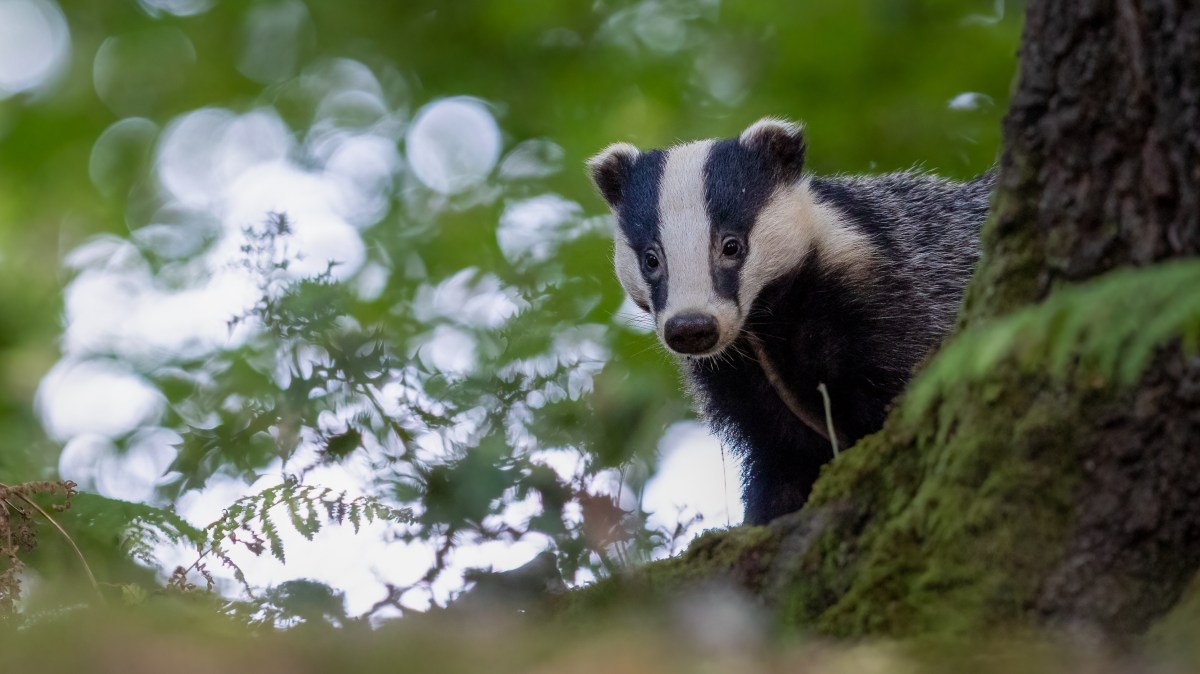Retirement, for many people, is an opportunity for a quieter life: time at the allotment, perhaps, or a luxury cruise on far-off seas.
Adrian Potter is not one of those people. Looking for a change at the age of 53, after a career as a primary school teacher in West Yorkshire, this was an opportunity to “go feral”.
He certainly achieved that, becoming the point of contact throughout Huddersfield and the wider Kirklees area to help any large mammal in distress: first badgers, then foxes, then deer.
Joining the local badger group, Potter was soon put in charge of the area’s “badger phone” — it happened to be his first mobile phone — which was called by the police, the council and local vets whenever a badger or other large mammal was hit by a car or got stuck somewhere it shouldn’t be.
“I needed to be defined by something different and exciting,” Potter, now 65, wrote in his memoir Interrupted Journeys, published last week, which tells the story of his unconventional retirement. “To say I was a retired teacher, to myself or anyone else, was never going to be enough.”
Armed with his savings and pension, and with no dependants, he spent £70,000 buying a three-acre patch of land containing a meadow, an area of planted trees and a deep clough — a gorge or narrow ravine — with a brook running through the woods.

Potter’s book
RACHEL ADAMS FOR THE SUNDAY TIMES
At this rewilding project, he has recorded 50 species of birds — barn owls, kestrels and sparrowhawks among them — and 14 mammals, including foxes and badgers, which have made the site their home.
Occasionally he also uses the site to nurse stricken creatures back to health, housing them in an old shed before they are strong enough to be returned to the wild. More severely injured creatures are taken to a vet or an animal rescue centre to receive treatment, he said. Usually, however, they are immediately put down to bring an end to their suffering.
• Beavers, voles and wiggly rivers: rewilding is coming to London
Even more often, being called out to a road collision, night or day, is a case of dealing with a carcass.
Reluctant to let these tragedies go to waste, he said, he decided to create the first robust dataset of the badgers killed on the roads of the Kirklees borough each year. “I was determined to examine every badger casualty that came up,” he said.

Potter rescuing a baby deer
COURTESY ADRIAN POTTER
That involved weighing the body (a male badger can weigh as much as 17kg), recording the animal’s sex and location, then disposing of the remains. Before he set out on his grisly task, there were records of 20 badgers a year killed on the roads in Kirklees. He was soon recording an average of 150 a year.
Extrapolating his data, he estimates 75,000 badgers are killed on Britain’s roads annually — 50 per cent higher than the official prediction, which dates back to a 1995 study by the University of York.
He described the death toll as an “indirect badger cull”, adding: “It’s huge, absolutely huge. People just don’t realise it. Roadkill might sound like a joke, but it isn’t — it is something profound.”
Other nations — the Netherlands, Switzerland, Canada — insist that whenever a new road is built, a tunnel or overpass is also created for the safe passage of wildlife. “In those countries wildlife is valued,” he said. “In this country we have nonsense about the British being animal lovers. We aren’t — we are pet lovers but we are actually afraid of wildlife.”
Potter said his motivation for penning the book, which he wrote in long-hand, as he does not own a computer, was to “open people’s eyes” about the wildlife that lives all around us.
Remarkably, even as predators, badgers allow rabbits to live alongside them in the setts they have dug, going elsewhere to hunt rabbits away from their home patch. Badgers are rarely aggressive towards humans and are actually rather timid. The false impression that they are vicious creatures stems from the fact they are so elusive. “The only people who have had close encounters with badgers are the people that persecuted them and caused them to become aggressive,” Potter said. Badger baiting remains a real problem, he added.

Brian May at an anti-badger cull event in London in 2016
DAN KITWOOD/GETTY IMAGES
Foxes, widely seen as vermin, are complex and fascinating creatures, he thinks. And deer, which are viewed as overly abundant, he calls “sensitive, otherworldly creatures … the most mysterious and wildest of our larger beasts”.
He writes that these species, which he calls the “Big Three”, have managed “to thrive, despite the worst we can do, by virtue of their deeply ingrained survival instincts”.
These days Potter has given up the badger phone, passing the number on to other members of the local badger group. Many areas have volunteers who provide this service — although in some parts it is performed by the RSPCA or a local wildlife rescue centre. Potter now focuses on roe deer, which he said have been rather neglected in his area. “I decided it was time to reinvent myself as the Deer Man,” he writes. “I had no official status in my new role; I was wholly independent and self-styled, and relied on authority figures knowing who I was from experience.”
Still, the calls have continued to come in, usually when a deer has been hit by a car. “In between times, like a soldier starved of action, I may admit to being a little bored,” he writes.
Potter said he was too angry to mention in his book the government’s badger cull: in an attempt to control bovine tuberculosis, almost 10,800 badgers were exterminated in England last year alone. “It doesn’t apply to our area, so I would be writing about it as an outsider, which I didn’t want to do,” he said. “But I also couldn’t write about it with a cool head, frankly, because it’s a national disgrace.”
He praised the Queen guitarist and wildlife campaigner Sir Brian May for his work “proving the badger cull is a farce”, adding: “And yet the government stubbornly refuses to take any notice of the science.” (May instead promotes vaccination, warning that the cull is an inefficient way of controlling the spread of TB in cattle).
Above all, though, he is proud of the way he has spent his retirement. “I’m proud of what I’ve achieved,” he said. “I’m proud to be there when a deer is in a difficult situation. I’m proud to have spent my savings on land which I’ve dedicated to wildlife. I’m not someone who spends my time sitting around thinking about how I am going to enjoy myself. I do what I think is important.”
Interrupted Journeys: Badgers and Other Roadside Distractions, by Adrian Potter, is published by John Murray at £14.99

